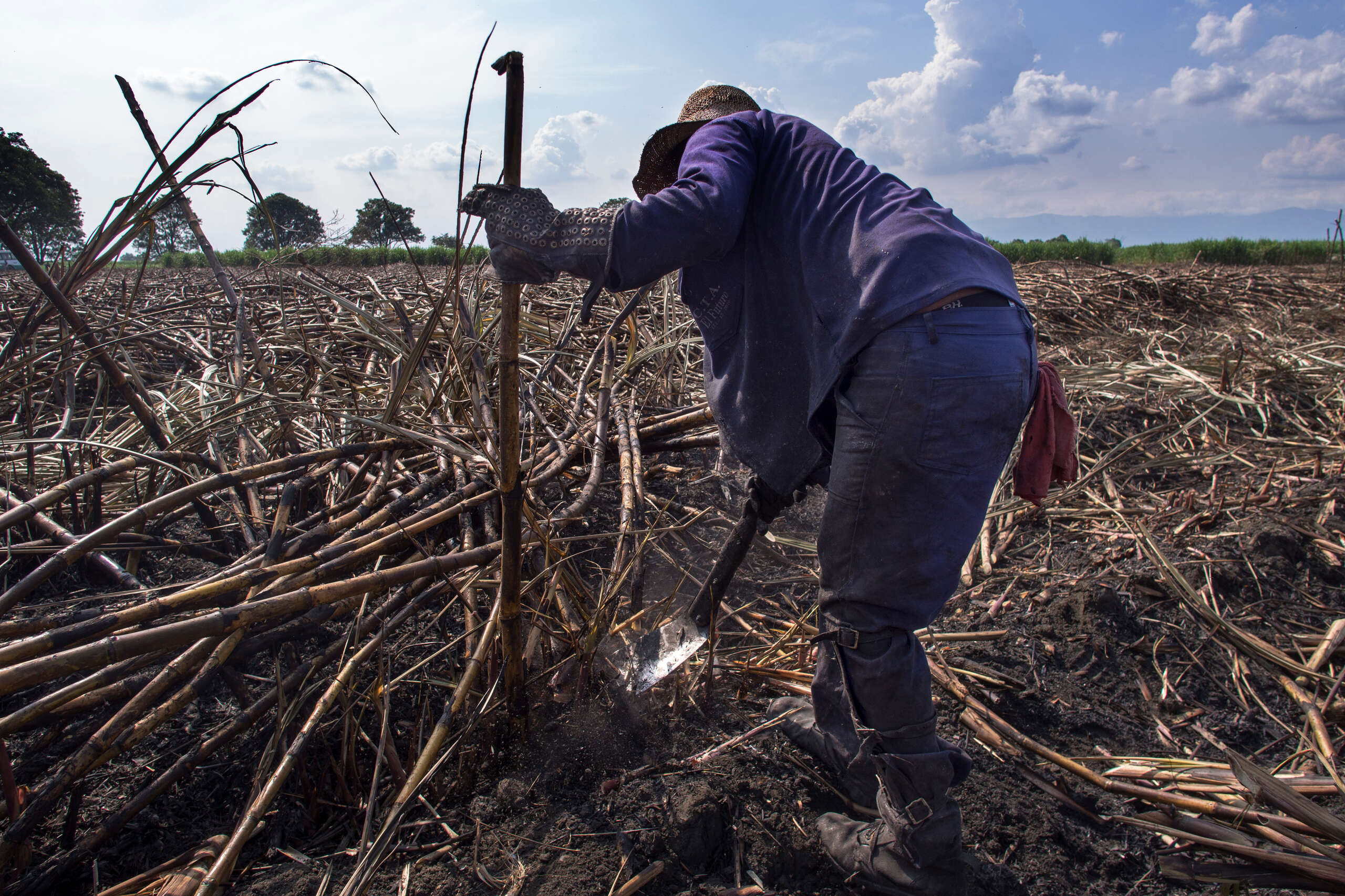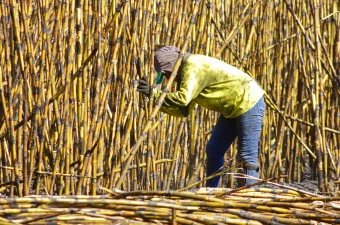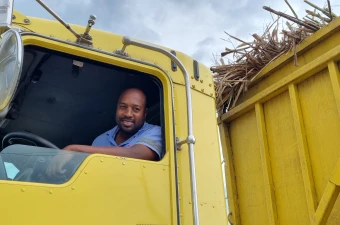
By: Marit Maij
You probably didn't notice while you were filling up a tank, or making a printout: For the first time in history, a living wage is being negotiated for workers in the sugar cane industry. This sugar cane is processed into ethanol, paper and soft drinks, among other things, and this puts it at the beginning of a global chain in which the US, the UK, as well as the Netherlands and other European countries are major buyers. The leading global certification organisation for the sugar sector, Bonsucro, has now shown the courage to include living wages in its new certification standard and commit to stronger employee participation. A living wage is an income from which you can make a decent living. Sugar cane cutters in Nicaragua, Guatemala and Colombia may soon be able to pay their regular expenses from the salary they receive for their gruelling work.
The leading global certification organisation for the sugar sector, Bonsucro, has now shown the courage to include living wages in its new certification standard and commit to stronger employee participation. A living wage is an income from which you can make a decent living. Sugar cane cutters in Nicaragua, Guatemala and Colombia may soon be able to pay their regular expenses from the salary they receive for their gruelling work.
The fact that this is important news testifies to how conservative parts of the sugar industry still are. The sector faces enormous sustainability problems, such as extremely long working days, piecework that makes no living wage, few breaks, heavy physical work in extreme heat, and insufficient drinking water. These conditions cause sugar cane cutters to suffer from numerous health problems, such as kidney disorders. And we have not yet mentioned the environmental problems caused by water use and CO2 emissions.
It took years before it was cautiously admitted that kidney disease, which has caused entire cemeteries in Nicaragua to be filled with prematurely deceased workers, is an occupational disease. Free and independent trade unions, able to stand up for the interests of employees, are struggling to gain a foothold. Guatemala, an important country for sugar production, does not even have trade unions in the sugar sector.
An important driving force for innovation towards a sustainable and future-proof sugar sector is Bonsucro, the sector's certifying organisation. Since it was founded in 2007, Bonsucro has taken important steps together with the leading players in the sector. It is this organisation that has now put living wages on the agenda in establishing a new standard for the production process of sugar cane and sugar. It is an impetus for change in an industry that also urgently needs a genuine social dialogue between employees and employers.
A living wage is a no-brainer
The lack of a living wage underlies a number of structural problems. Precisely because a regular wage is not sufficient to support a family, workers have to resort to piecework in order to obtain sufficient income. The result is an attack on workers' health due to the heavy work, which involves more than 60 hours per week. Whole families are mobilised to meet the quotas, resulting in child labour. The statutory minimum wage in producing countries should be a guarantee for a living income; however, recent studies by NGOs have shown that in many cases minimum wages are still far from being living wages. For the business case of Bonsucro to remain credible, therefore, the step to include a living wage in the certification standard is crucial. More and more investors will want a guarantee that living incomes will be paid in the listed companies in which they invest: the major sugar buyers. Investors in the agrifood sector are giving attention to the LivingWage concept.
An example of this is the Dutch Platform Living Wage Financials, which consists of financial institutions investing in major companies in the agrifood, food retail, and garment & footwear sectors. They started out encouraging living wages in the garment industry and are now also looking at retail food brands and supermarkets.
Social dialogue equals innovation
In order to become truly sustainable, a change of culture is important. In modern companies, employees want to have a say in the course of their business. It is they who know best where things can be improved in business operations, because they are doing the work day in and day out and know what they are talking about.
A social dialogue obviously has to include the freedom of trade union association, the right to negotiate collective agreements, but also the consultation of workers on measures to increase health and safety within the company. By fully integrating employee involvement into the operations of companies and effectively monitoring it, operational management is improved in a truly sustainable way and violations of labour rights are prevented.
There are also voices that say that the Covid-19 crisis calls for fewer requirements and to not improve the certification standard, the argument being: ‘Let's not make things too difficult for companies’. But of the eighty percent of the world's sugar production that originates from sugar cane, still no more than 4.5 percent is certified sustainable. The argument that it should above all be easy for companies to take part, and then the rest will come naturally, does not make sense.
As a member of Bonsucro, CNV Internationaal is convinced that the certification standard needs to be improved. Only then will the Bonsucro standard gain credibility for consumers and buyers. It is not time for business as usual; it is time for true sustainability. Committing ourselves to strengthening the industry standard is the only way forward. But to achieve that, solidarity in the chain is paramount - especially from the buyers and end users of sugar.
More info via this link.
Contributing to the public consultation via this link
Publication date 14 07 2020


